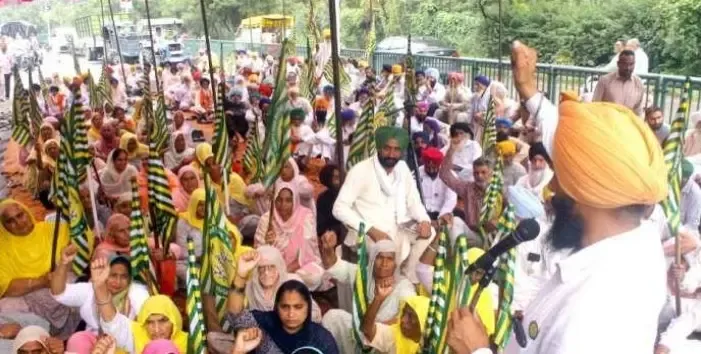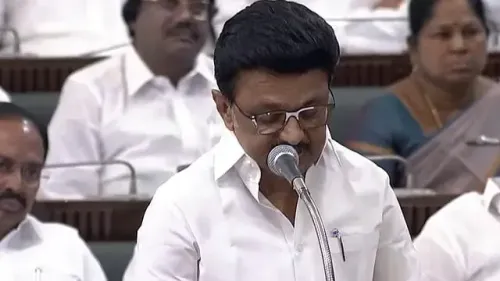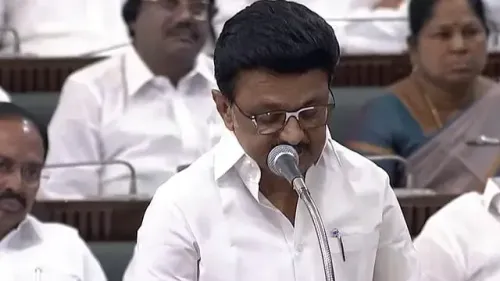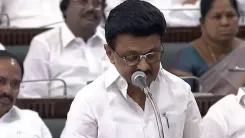Punjab Police Detain Agricultural Leaders Overnight, Clear Protest Sites

Synopsis
Key Takeaways
- Over 300 farmers detained in Punjab.
- Sarwan Singh Pandher and Jagjit Singh Dallewal among those arrested.
- Dallewal hospitalized after hunger strike.
- Economic impact of border blockades discussed.
- Calls for a strategic approach to farmer protests.
Chandigarh, March 19 (NationPress) In a midnight operation, following the third round of discussions with the Centre, over 300 farmers protesting were taken into custody on Wednesday, including prominent farmer leaders Sarwan Singh Pandher and Jagjit Singh Dallewal.
Dallewal, who has been on a hunger strike since November of last year, was subsequently hospitalized.
Pandher was detained at the Zirakpur barrier, while other leaders, including Dallewal, Kaka Singh Kotra, and Abhimanyu Kohar, were apprehended near Bestech Mall in Mohali. All these incidents occurred on the outskirts of Chandigarh, where discussions with Union ministers, including Shivraj Singh Chouhan, were taking place.
In response to the detainment of farmer leaders, Punjab Finance Minister Harpal Cheema stated that this action was necessary for the state’s economic progress.
“It is crucial that we combat unemployment as well,” he remarked.
Before the police action, Aam Aadmi Party (AAP) MP Malvinder Singh Kang advocated for a cooperative and constructive method to address the ongoing challenges faced by farmers.
He emphasized that Punjab's borders have been blocked for over a year, resulting in major economic drawbacks, diminished investments, and a downturn in tourism.
Kang stated, “Every Punjabi has consistently supported the farmers. Whether it was regarding the black farm laws or any other issue, the people of Punjab, whether urban or rural, youth, farmers, laborers, and businesspeople, have wholeheartedly backed the farmers’ movements. The repeal of the black farm laws was a triumph achieved through unity and resilience.”
Kang pointed out the negative consequences of the extended border closures.
“The closure of Punjab’s borders, especially at Shambhu, has not only caused economic difficulties but also impacted religious tourism. The influx of devotees to sacred sites like Darbar Sahib has decreased. Moreover, the most significant challenge is the absence of investment, which is directly linked to industrial growth and job creation. This is a critical concern as unemployment is one of the primary causes of drug abuse in Punjab.”
He urged the farming community to adopt a more strategic approach to their struggle.
“Chief Minister Bhagwant Mann has also highlighted that most of the farmers’ demands pertain to the Central government. We must take this fight to Delhi instead of inflicting further economic harm on Punjab by blocking our own borders. Punjab’s economy, investments, and tourism are suffering due to these blockades.”
Reaffirming support for the farmers, Kang added, “We encourage our farmer brothers to reconsider their methods and redirect their fight towards the Central government. Let us unite for the advancement of Punjab without damaging our state’s economy or its people.”










